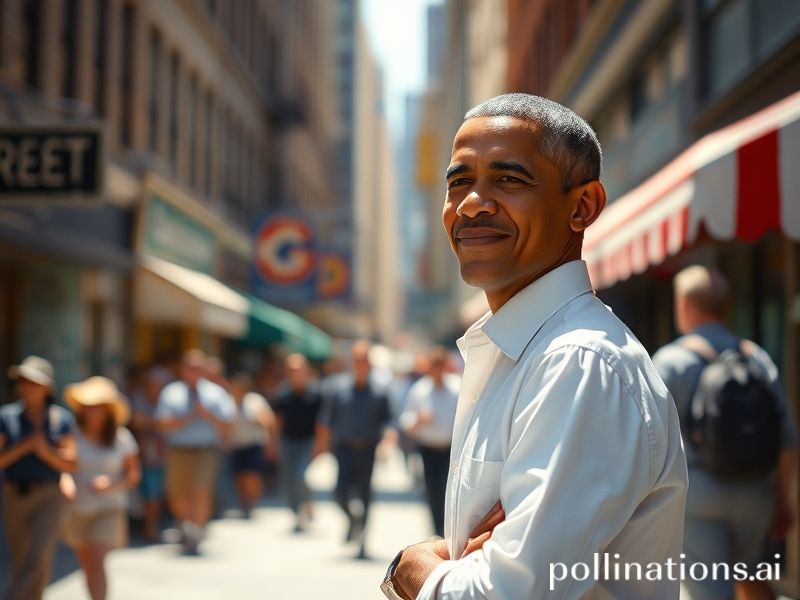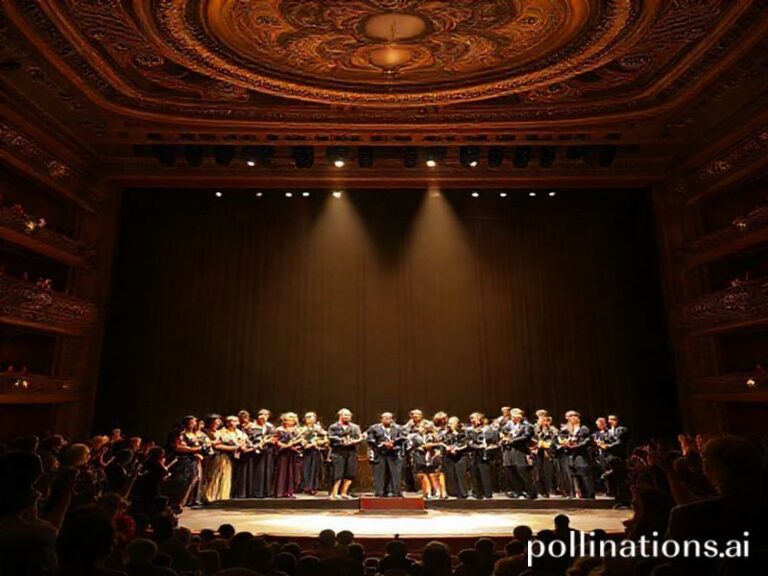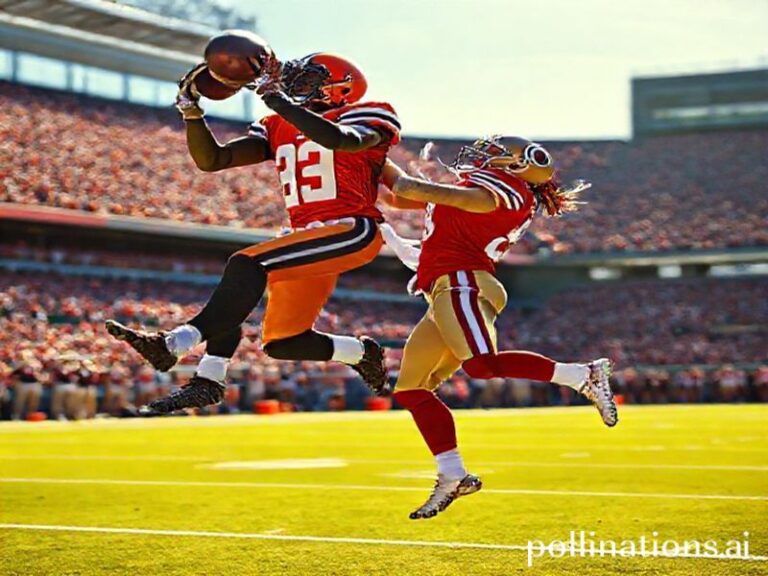Global Ghosting: How the World Still Swipes Right on Barack Obama
Barack Obama: The Last Man Who Made the World Clap Before Checking Its Wallet
By Dave’s Locker, International Desk
PARIS—Somewhere between the Champs-Élysées and a Nairobi traffic jam, Barack Hussein Obama still strolls in the collective imagination like a well-tailored ghost of what might have been. Eight years after he left the Oval Office, the planet still treats the 44th president like a long-distance ex: fond texts at 3 a.m., wistful playlists on Spotify, and the quiet understanding that we’ll never again be that drunk on hope. From Berlin’s Brandenburg Gate to Jakarta’s schoolyards, Obama remains a global Rorschach test—half messiah, half marketing seminar—against which every subsequent leader is measured and found either too orange, too boring, or simply too French.
Europe, of course, adores him the way it adores vintage wine: uncork, inhale, pretend the bouquet hasn’t oxidized. When Obama swung through Germany in 2017 to discuss “ethical digitalization” (translation: how to mine your data with better table manners), ticket scalpers asked €5,000 a seat. Angela Merkel, who spent eight years practicing her disappointed-mother face over NSA wiretaps, greeted him with the warmth normally reserved for a visiting nephew who once crashed her car but brought excellent Riesling. EU technocrats still cite his 2009 Cairo speech the way medieval monks cited Augustine—selectively, and only when fundraising from Gulf donors.
Meanwhile, Africa oscillates between pride and resentment. Kenya renamed a beer “Senator” in his honor, then watched Chinese contractors pave over ancestral graves to build the new Mombasa expressway. Obama’s 2015 visit to Addis Ababa—where he lectured African strongmen on term limits while standing next to Ethiopia’s 100-percent-election-winning prime minister—was peak post-colonial satire, a scene Evelyn Waugh would’ve rejected as too on-the-nose. Today, every ambitious Nairobi start-up claims “Obama walked here” the way every Irish pub claims “Washington drank here,” and with comparable historical rigor.
Asia prefers its Obama nostalgia with a side of strategic anxiety. In Tokyo, policy bros toast “Barry” over shōchū because he signed the Trans-Pacific Partnership, the free-trade pact that Donald Trump shot behind the barn and Joe Biden keeps in cryogenic stasis. Across the East China Sea, Chinese state media still portrays Obama as “weak on containment,” which roughly translates to “didn’t start the war we were gaming out.” The irony is exquisite: the Nobel Peace laureate who bombed seven countries is now remembered in Beijing as the last guy who didn’t bomb them enough.
Latin America, ever the connoisseur of U.S. hypocrisy, files Obama under “polite imperialism.” He restored diplomatic ties with Cuba just in time for Airbnb to discover Havana’s crumbling charm, then deported more Central Americans than any president before him—a statistic Guatemalan coffee farmers toast with the blackest of humor. In Buenos Aires, leftist bookstores sell Obama action figures next to Che Guevara lighters, creating a dialectical toy aisle that would make Marx choke on his yerba mate.
Of course, the Middle East remembers the hope and change in shrapnel form. Libya’s descent into Mad Max cosplay, Syria’s red-line watercolor, and the evergreen drone campaign all bear the Obama brand—precision munitions with a human face. Gulf monarchies speak of him in the hushed tones reserved for a disappointing heir: civilized, well-spoken, but unwilling to bomb Iran on cue. Israeli analysts still debate whether his 2011 “1967 lines” speech was strategic heresy or merely the naïveté of a man who believed PowerPoint could out-argue history.
The cosmic joke is that everyone—friend, foe, and frenemy—now uses Obama as a cudgel against his successors. Trumpists deride him as feckless; European Greens call him the last adult in the room; Chinese diplomats invoke his “strategic patience” to shame Washington’s latest tweet-storm. In deathless think-pieces from London to Lagos, the consensus is that we didn’t lose a president; we lost an aesthetic—cool rationality wrapped in Ivy League diction, teleprompter poetry masking a Predator drone humming overhead like an expensive conscience.
And yet, when Obama appears at COP summits or NBA All-Star weekends, the world still leans in, desperate to believe the con: that history has good guys and bad guys, that speeches can bend carbon curves, that somewhere behind the tinted SUV windows sits a better version of ourselves. It’s a comforting fairy tale, really—like believing the plane’s Wi-Fi will work over the Atlantic or that the French will stop striking. But comfort, as any refugee camp or subprime mortgage can attest, remains the most lucrative export of the Global North.
So here we are, circling the same drained glass, toasting a man who proved that charisma is a currency stronger than the dollar but weaker than physics. The planet keeps swiping right on Obama because the alternative bios are even worse. And until the next photogenic savior downloads a Spotify playlist, we’ll keep humming “Yes We Can” in 27 languages, all of them fluent in regret.







